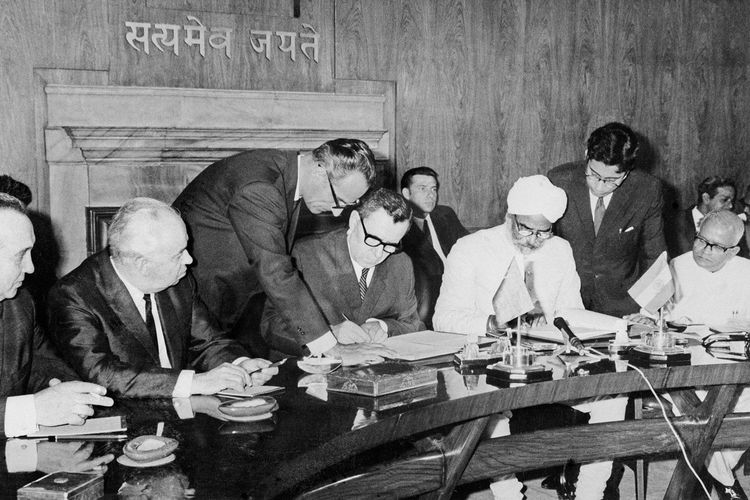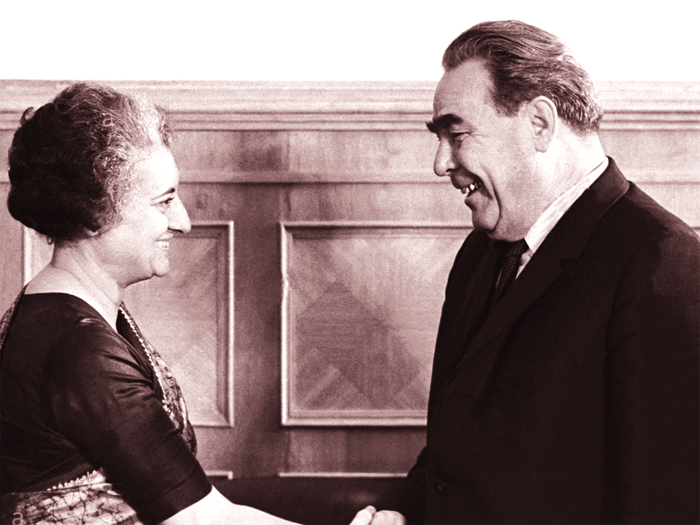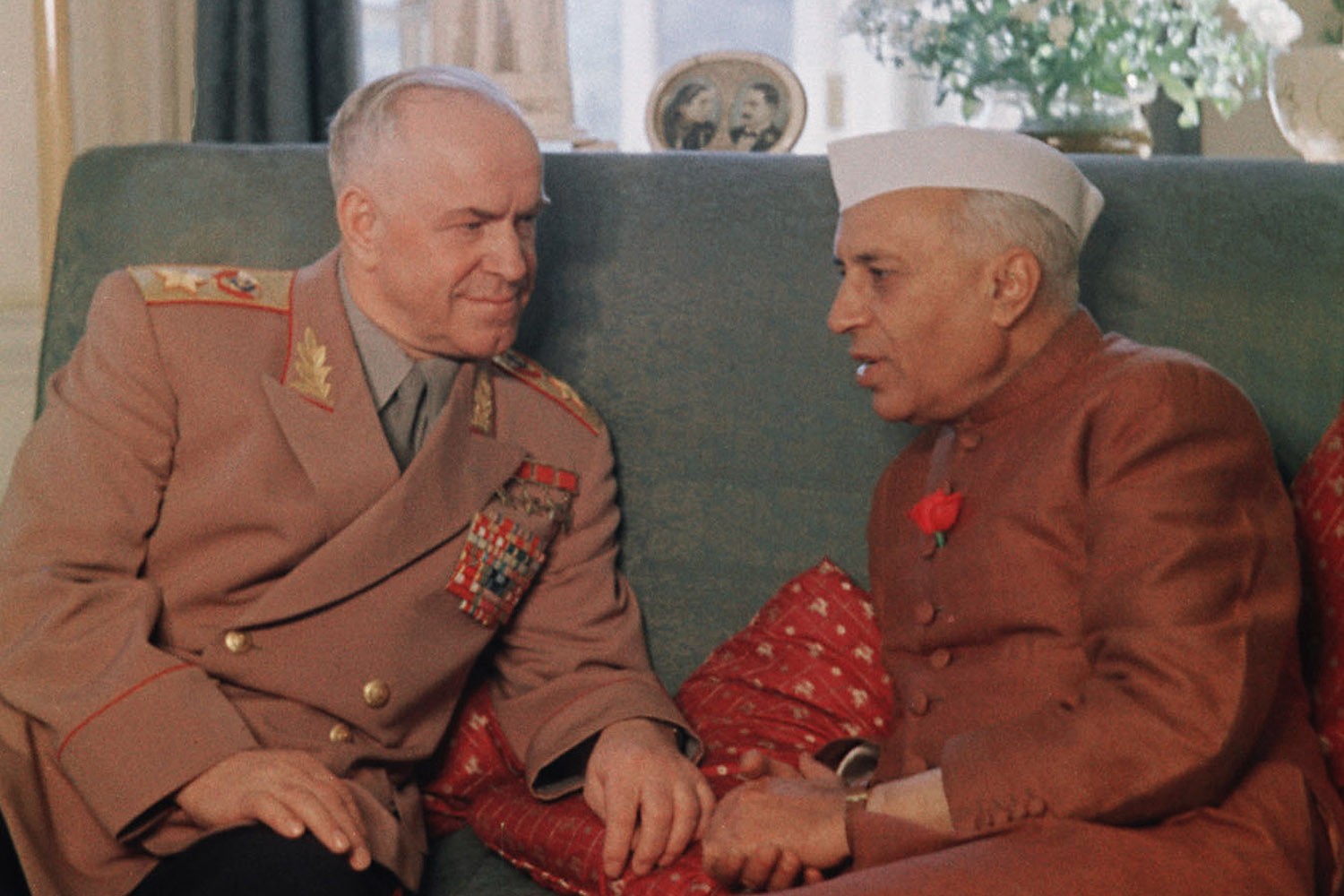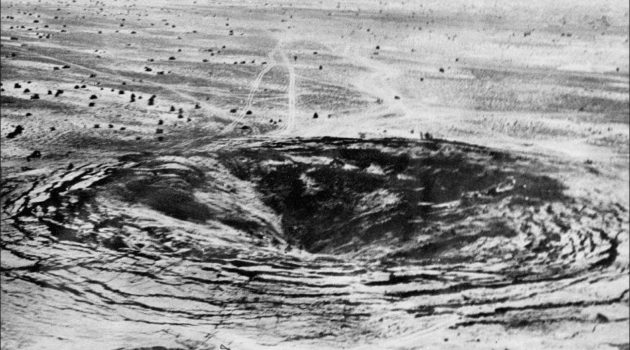Russia is India’s longest-standing ally. They have aided us in every war and peacetime crisis. Not to mention that when India gained independence, we required weaponry. The world ruled by the West was uninterested in our need. Russia came forward and supplied us with around 40% of our missiles, artillery, jets, fighter planes, and other equipment.
India & Pakistan War
In December 1971, India and Pakistan battled for 13 days—one of the shortest wars in history—over a humanitarian crisis in East Pakistan, now Bangladesh. For months, India had been attempting to persuade the world that West Pakistan’s enslavement of East Pakistan was an emergency. Refugees from East Pakistan were flowing into India, and the situation would only improve if the political impasse between West and East Pakistan could be resolved.

The only country that listened was the Soviet Union. Indira Gandhi, the Indian Prime Minister at the time, signed the India-Soviet Treaty of Peace, Friendship, and Cooperation in August of that year. Gandhi had delayed concluding the deal for internal political reasons; she did not want to give political opponents ammunition to accuse her of being too friendly with the Soviet Union.
However, international considerations quickly became more pressing: with the signing of the treaty, the Soviet Union supplied India with both diplomatic and military backing for the war Gandhi foresaw, so assisting India in its victory over Pakistan.

The relationship between India and Russia did not begin in 1971.
With various setbacks and glitches, Moscow and Delhi had been building ties during the 1950s and 1960s. According to Anuradha Chenoy, a Russia scholar and former dean of Jawaharlal Nehru University’s School of International Studies, the Soviet Union gave development support in the post-Stalin 1950s and military help in the 1960s. It also helped that Nehru, India’s first prime minister, saw his country as noncapitalist and at least somewhat socialist, she said.
 In 1956, Soviet Defense Minister Georgy Zhukov (left) and Indian Prime Minister Jawaharlal Nehru met in New Delhi for negotiations.
In 1956, Soviet Defense Minister Georgy Zhukov (left) and Indian Prime Minister Jawaharlal Nehru met in New Delhi for negotiations.
First Indian Underground Nuclear Test
When India conducted its first nuclear tests in the 1970s, it caused friction with the US; while Washington opposed New Delhi’s attempt to acquire nuclear weapons, Indian officials resented their American colleagues’ lecturing. In comparison, the Soviet Union publicly stressed the peaceful nature of the tests, however historical documents suggest that the Soviets quietly tried to persuade India not to conduct them.

The Soviet Union did not only express tacit support for, or at least less explicit opposition to, India’s nuclear development. It also aided in the expansion of India’s military forces. Historians characterise India as “addicted” to Soviet defence technology in the 1970s and 1980s. And the addiction was cheap: Soviet gear was frequently purchased on credit.
1990’s Relationship
The reality is that India, which relied on Russian guns and weaponry for its Navy, Army and Air Force, need the Russian defence sector and effectively kept it afloat during Russia’s turbulent transition. And, while people-to-people contacts and cultural connections were not as strong as they were during the Soviet era, some families and businesses—for example, the Khemka family of the SUN Group—managed to do business in Russia and with Russians, and are still active in Russia today.
Russia Removes Other Country Flags and Keep Indian Flag
For the first time in history, the effects of war on Earth have been felt in space. After Russia stated that sanctions imposed by the United States and European nations on Russia for its invasion of Ukraine could result in a crash of the International Space Station, they have now removed all flags of countries participating in space programmes from a rocket they are launching, except the flag of India.
Russian space agency ROSCOSMOS’ chief Dmitry Rogozin tweeted a video of employees at the Baikonur launch pad covering over the flags of the United States, Japan, and the United Kingdom on the OneWeb rocket, which is due to launch on Friday. The Indian flag, on the other hand, was not destroyed.
Стартовики на Байконуре решили, что без флагов некоторых стран наша ракета будет краше выглядеть. pic.twitter.com/jG1ohimNuX
— РОГОЗИН (@Rogozin) March 2, 2022
Under the OneWeb initiative, the Soyuz rocket is carrying 36 satellites from several countries that will give broadband Internet connectivity. The project’s goal is to put 648 satellites into orbit, and 428 of them have already been launched, all with the Soyuz rocket. The project is owned by the UK government and the Bharti Airtel group .
The world has changed, but India and Russia have found methods to retain their alliance, standing strong for each other when the rest of the world would not, keeping relatively consistent foreign policies despite changing leadership, and refusing to bury a historic partnership.